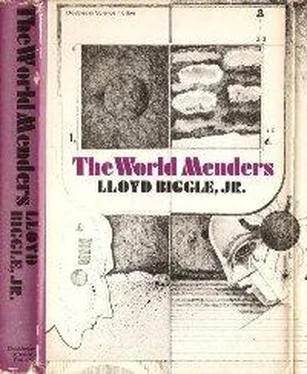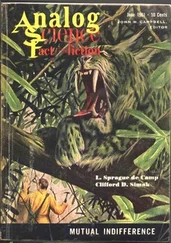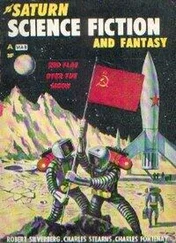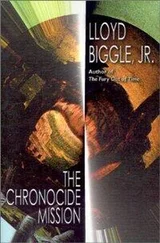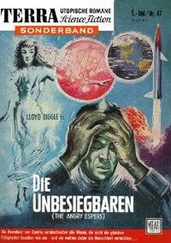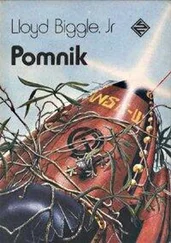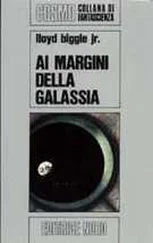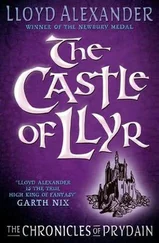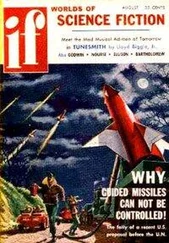Lloyd Biggle Jr. - The World Menders
Здесь есть возможность читать онлайн «Lloyd Biggle Jr. - The World Menders» весь текст электронной книги совершенно бесплатно (целиком полную версию без сокращений). В некоторых случаях можно слушать аудио, скачать через торрент в формате fb2 и присутствует краткое содержание. Год выпуска: 1971, Издательство: Doubleday, Жанр: Фантастика и фэнтези, на английском языке. Описание произведения, (предисловие) а так же отзывы посетителей доступны на портале библиотеки ЛибКат.
- Название:The World Menders
- Автор:
- Издательство:Doubleday
- Жанр:
- Год:1971
- ISBN:нет данных
- Рейтинг книги:5 / 5. Голосов: 1
-
Избранное:Добавить в избранное
- Отзывы:
-
Ваша оценка:
- 100
- 1
- 2
- 3
- 4
- 5
The World Menders: краткое содержание, описание и аннотация
Предлагаем к чтению аннотацию, описание, краткое содержание или предисловие (зависит от того, что написал сам автор книги «The World Menders»). Если вы не нашли необходимую информацию о книге — напишите в комментариях, мы постараемся отыскать её.
The World Menders — читать онлайн бесплатно полную книгу (весь текст) целиком
Ниже представлен текст книги, разбитый по страницам. Система сохранения места последней прочитанной страницы, позволяет с удобством читать онлайн бесплатно книгу «The World Menders», без необходимости каждый раз заново искать на чём Вы остановились. Поставьте закладку, и сможете в любой момент перейти на страницу, на которой закончили чтение.
Интервал:
Закладка:
And she could not or would not tell what she had learned.
As the night deepened, the ol women and children withdrew from the fire and gathered in the outer shadows in a mystic communion that defied Farrari’s understanding. Only then would Liano leave her hut and join them. Her work was with the women and children, and when she cared for a sick male it was, except in times of epidemics, because a woman requested it. The children loved her, and she played tirelessly with them, performing sleight of hand tricks with a shining pebble or a twig. She brewed mysterious drafts for them, performing incomprehensible incantations over clay bowls of steaming liquid and at the same time surreptitiously lacing the drinks with vitamins.
Unlike the men, the women babbled incessantly. Undoubtedly it was they who kept their language viable, but Farrari had no inkling of what they talked about. When he asked Liano she smiled mysteriously and did not answer.
Farrari huddled in darkness far from the warmth of the fire, watching Liano, tensed to leap to her side when she beckoned. As a kewl he was lowest of the lowly, perhaps because he served a woman, and all of the olz ignored him, even the children. They made room for him at the fire only when he approached it on an errand for Liano. As there was little for him to do, he watched, and listened, and meditated.
He had not thought it possible that a society could be so utterly barren of culture. The lifeless phonetic symbols of the IPR Bureau were the only written form of the ol language, but even a people without writing should have had an oral tradition of myth or history. The olz had none. They had no storytellers or minstrels, and for all of the incessant woman talk, Farrari never heard a woman croon a lullaby. With their crude sticks they scratched the soil for twice-a-year plantings, but it had never occurred to them that those same scratches might be utilized to communicate or represent.
How does one raise a cultural level, Farrari demanded of himself, when there is no culture to start with?
But the IPR base, and the talk of oh-ohing the planet and a twothousand-year hiatus were remote almost beyond memory as Farrari watched the male olz around the oily, reeking nightfire. There was no laughter among them—not even the children laughed—and Farrari vainly searched the taciturn ol faces for one fleeting glimmer of an illusive, inward-turning smile. In this, the most favored season of the year, they seemed neither happy nor unhappy. If there was joy in their lives they concealed it well; in another season they probably concealed their misery.
The olz existed; why they existed seemed no concern of theirs.
Farrari had expected to find a grim, barren land. Instead they moved through pleasantly shaded, fragrant lanes, for even the deadly zrilm shrubs put forth large blossoms that hid their vicious needles under exquisite splashes of color.
There were thick zrilm hedges, taller than a durrl mounted on a gril, that completely enclosed the fields and could be passed only with portable stiles. These ramshackle constructions of pegged boards had a platform at the top from which a durrl, or his assistant, could view the work in several adjoining fields. Every harvested tuber, or basket of grain, had to be laboriously carried over one or several zrilm hedges to the waiting wagons, and at night the durrl carried away the stiles. A system of gates would have greatly lessened the ors toils, but gates would have been much more difficult to guard. The zrilm, the symbol of the ors bondage, was also the symbol of his hunger. No starving ol had ever been known to force his way through a zrilm hedge; starvation was the easier death.
Farrari saw durrlz rarely and then only at a distance, for they almost never visited an ol village. The olz, even the youngest children, went to the fields at dawn and returned at dusk. Farrari had a leisurely, tedious day, followed by a few hours of excruciating alertness at the nightfire when he prepared Liano’s food, ran errands at her bidding, restrained a feverish child while she performed a rite of health over it, looked after the narmpf, and finally, when the olz retired to their huts, he would send his daily report to field team headquarters.
After two or three nights in a village they moved on, departing in the morning without a leave-taking because the olz were already at work, and, before they left, returning to the village stores the pathetic offering of tubers and grain that had been ceremoniously presented to Liano the night of their arrival. They would reach their next stopping place by late afternoon, Farrari would clean out the hut reserved for any visiting yilesc and prepare a sleeping place for himself in the open, and they would await the return of the olz.
The nights lengthened and became colder. The last of the harvest was gathered, and the day came when most of the olz remained in the village. Jorrul thought that Farrari was not sufficiently experienced to undergo the strain of maintaining his ol identity continuously, so he ordered them out. They left the next morning and that night base sent a platform to pick them up.
“You’ve done well,” Jorrul told Farrari. “You’ve learned to act like an ol. Now we’ll have to teach you to think like one.” He added softly, “Liano seems to have done well, too. Did you find out anything?”
Farrari shook his head. They had asked him to be alert for any clue concerning the mystery of the yilescz, and since they could give him no notion of what to look for, he doubted that they seriously expected him to find it.
“Would it be all right to ask Liano to marry me?” he asked.
Jorrul frowned. “She wouldn’t. Not after what happened. Her husband was literally torn to pieces before her eyes. I’m certain she’d never take to the field again with a fellow agent who was anything more than that. It would impair your relationship if she even suspected that you wanted to marry her, so don’t mention it. You can help her most by keeping your work on a strictly impersonal basis.”
“Then tell me one thing,” Farrari said angrily. “If she has no personal interest in me, why did she choose me?”
“We’ve wondered about that,” Jorrul said. “We’re still wondering, but with things going well we’re not about to upset them by asking questions.” He changed the subject with a shrug. “I take it that you didn’t encounter any difficulties.”
“Once my muscles got resigned to my moving like an ol, I spent most of the time feeling bored.”
“That’s because you weren’t thinking like an ol.”
“How can you tell how an ol thinks?” Farrari demanded.
“We can’t,” Jorrul admitted. “The most we can do is reason from our observations. We know how an ol ought to be thinking. He has so little leisure time during the agricultural season that if he thinks at all he must envy you yours. Maybe that’s why a yilesc is never without a kewl. If she loses one she can replace him at any village, probably with the first ol she asks.”
“After what I’d been led to expect, it was almost a letdown,” Farrari said. “I saw no beatings, no starvation, and very little illness. I rarely saw a durrl, and if there was any danger I certainly didn’t notice it.”
“On your first field assignment we wouldn’t put you where there was much danger. In the outlying districts the durrlz are more humane, probably because they aren’t likely to be ambitious or they wouldn’t be there. Also, fall is the healthiest time of the year. The weather is mild, and the olz always eat well during the fall harvest. The sickly are already dead and the well will probably remain well until winter sets in. When you go back you won’t have it so easy. This is the year of the half crop, and that means… you’ll find out what it means.”
Читать дальшеИнтервал:
Закладка:
Похожие книги на «The World Menders»
Представляем Вашему вниманию похожие книги на «The World Menders» списком для выбора. Мы отобрали схожую по названию и смыслу литературу в надежде предоставить читателям больше вариантов отыскать новые, интересные, ещё непрочитанные произведения.
Обсуждение, отзывы о книге «The World Menders» и просто собственные мнения читателей. Оставьте ваши комментарии, напишите, что Вы думаете о произведении, его смысле или главных героях. Укажите что конкретно понравилось, а что нет, и почему Вы так считаете.
